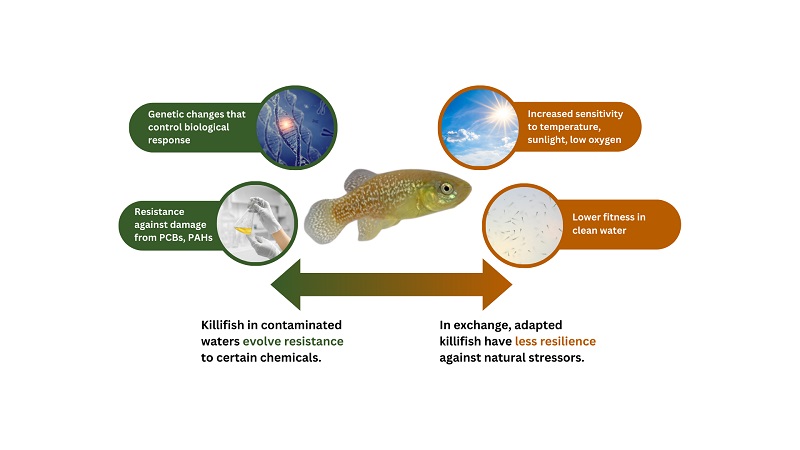
Heat-Resilient Zebrafish Unveil Unforeseen Cold Resistance, Challenging Climate Adaptation Concepts
A pioneering research endeavor that could transform scientific perspectives on evolution amid climate change has found that fish selectively bred for heat resilience might also acquire an unforeseen benefit: enhanced cold resistance. These discoveries could provide vital insights into how aquatic organisms may adapt to increasingly fluctuating global temperatures.
Recently published in Nature Climate Change, the investigation, spearheaded by scientists at the Norwegian University of Science and Technology (NTNU), monitored the evolutionary reactions of zebrafish over seven generations of selective breeding. The aim? To determine if fish could evolve to better cope with elevated temperatures. However, the outcomes were anything but expected.
Evolution’s Hidden Bonus: A Dual-Edged Adaptation
“Typically, we anticipate that species adapted to warmer environments will exhibit reduced cold tolerance. What we observed was this unexpected enhancement in cold tolerance, which was quite surprising,” noted Anna Andreassen, the lead author of the study and a PhD candidate at NTNU.
Starting with zebrafish collected from India in 2016, the research team categorized the population into three separate groups:
- Fish selectively bred for increased heat resistance
- A control group that reproduced naturally
- Fish chosen for lower heat tolerance
After breeding these fish for seven generations, those selected for heat resistance significantly expanded their thermal tolerances—not only becoming more heat-resistant but also demonstrating a surprising boost in cold tolerance. This contradicts traditional notions in evolutionary biology, where adaptability to one extreme often results in diminished performance in another—known as a fitness trade-off.
No Downsides? Researchers Discover No Trade-Offs in Adaptation
Astonishingly, one of the most notable revelations from the study was the lack of any evident trade-offs. Usually, evolutionary adaptations come with costs, such as decreased fertility or diminished physical capabilities. However, the heat-adapted zebrafish appeared equally robust as their unmodified peers across key performance indicators, including:
- Oxygen consumption efficiency
- Swimming capability
- Reproductive success
- Growth velocity
“Very few research teams have had the opportunity to explore how fish can evolve while confronting climate change, as it requires thousands of fish and extensive time dedicated to experiments,” said Fredrik Jutfelt, the senior author of the study and head of NTNU’s Fish Ecophysiology Lab. “That renders this research highly significant because we can finally begin to comprehend how evolution might assist fish in adapting to warmer aquatic environments.”
Fish on Treadmills Challenge a Foundational Theory
To dive deeper into the adaptability of these fish, the team executed one of their most innovative experiments: placing small zebrafish onto aquatic “treadmills.” Utilizing swim tunnels, they assessed oxygen uptake while regulating both the temperature and flow of the water.
This experimentation aimed to evaluate one of the central theories in climate biology—known as the oxygen- and capacity-limited thermal tolerance (OCLTT) hypothesis—which suggests that rising temperatures are detrimental to organisms by reducing their oxygen availability.
“A major hypothesis suggests that warming might not directly limit animals, but that oxygen availability decreases at higher temperatures. However, we did not observe that,” Andreassen remarked. “This is significant for our field.”
This discovery could incite a monumental shift in how researchers study and model the biological repercussions of climate change, particularly for aquatic species reliant on oxygen as a critical limiting factor.
Implications for a Warming Planet: Can Nature Adapt Fast Enough?
While the lab-based evolution of zebrafish offers optimism that certain species could adjust more rapidly than previously thought, actual environmental conditions are considerably more intricate. Natural evolutionary mechanisms unfold over thousands of generations—a timeframe many species lack as temperatures rise swiftly.
“Although the zebrafish showed no detrimental effects from developing tolerance to higher water temperatures, climate change will continue to present unforeseen and hazardous challenges to all life on Earth,” Jutfelt warned.
Ultimately, the study conveys an essential dual message: while evolution may provide formidable survival strategies, it is not a cure-all in the face of anthropogenic impacts.